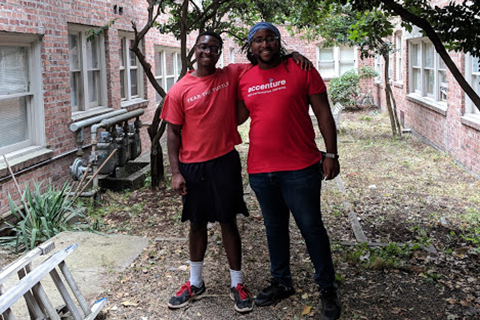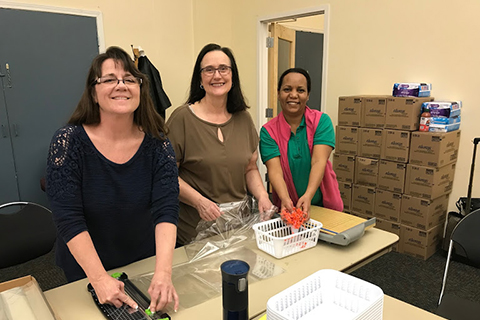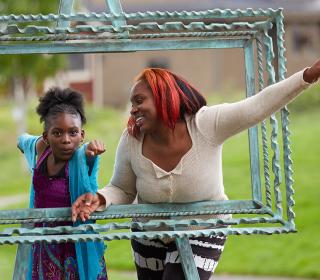Race and Social Justice Plan
As part of YWCA’s Race and Social Justice Initiative over 2019, the Volunteer Services Department implemented a plan to increase the reach of our services to Black and African American women and girls. This means we actively worked to connect with Black and African American communities to offer our services and opportunities.
Several YWCA programs track the ratio of Black and African American women and girls served versus their staff for equitable alignment. For Volunteer Services, we also analyze the race, gender, education status, and age of our volunteers in order to practice inclusion.

Connecting with & Expanding Our Community
While recruiting potential volunteers we want to keep in mind our volunteer’s needs. Our department serves people from all walks of life who want to engage with the community. Volunteer Services’ new strategy of recruitment was based around centering Black and African American women and girls, the average age of our volunteers, and their origin of participation. We identified high school and college students looking for academic credit as a primary demographic. A secondary prominent pool of potential volunteers were seniors aged 66 and up, often looking to fill leisure time utilizing professional skills to advocate for women. With our RSJ goal in mind, we were able to identify Black and African American academic clubs such as Black Student Unions and senior centers in historically black neighborhoods to expand our outreach and recruitment.

2019’s Accomplishments
Race and Gender
Why it is important for equity: Volunteer Services works to improve equitable outcomes for our volunteers and clients in YWCA programs. It is important for us to look for and address misalignment in the race and gender of our volunteers and the greater community. We take the time to question if our services are reaching marginalized communities and make a plan to make the extra effort it takes to reach these communities.
Tracking race and gender data can also improve equity results for clients in YWCA programs by employing volunteers that reflect who our clients are. While most of YWCA’s programs support women, there are numerous YWCA services that reach men and individuals of other gender identities. Due to this, we extend service opportunities to all people where they are most needed in gender specific or all-inclusive roles.
Education and Age
Why it is important for equity: Our volunteers bring a diverse spectrum of skills and perspectives to YWCA that allows us to create strategic, mutually beneficial partnerships. We offer academic service learning for university and high school students who want to serve, as well as develop, professional skills. Volunteer Services works with volunteers and program managers to develop service opportunities that observe YWCA clients’ expressed and unexpressed needs.
What our numbers show



Moving forward with Equity

In 2020, Volunteer Services plans to moving forward with race equity work. The data we track shows improvements since last year but there is still more to do. We will continue to shape our upcoming strategies through a race and social justice lens and data analysis. For the benefit of our volunteers and YWCA clients, social justice is critical to our success as an organization and to our health as a community.
Join us at an upcoming orientation to learn more about YWCA and our race and social justice work. King and Snohomish County orientations are listed under one-time events here.

Kendyl Hardy is the Volunteer Services Coordinator at YWCA Seattle | King | Snohomish. As an avid volunteer herself, Kendyl finds volunteering is a way to grow personally and as a community. Kendyl graduated with a degree in Public Relations with a concentration in nonprofit management. Throughout her college career, she worked to highlight the importance of civic service to sustain society and feature dialogue about issues affecting our communities.
We share the stories of our program participants, programs, and staff, as well as news about the agency and what’s happening in our King and Snohomish community.


